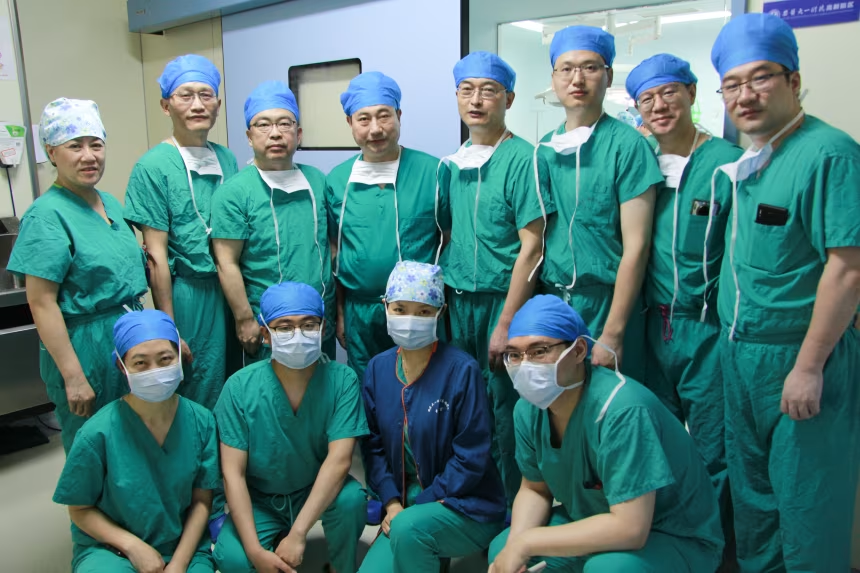World’s First Pig-to-Human Liver Transplant Marks Major Medical Breakthrough
Photo Credit:Dr. Beicheng Sun/CNN
In a remarkable medical milestone, surgeons in China have successfully performed the world’s first pig-to-human liver transplant, giving new hope to millions battling liver diseases.
According to a NAN report, the patient — a 71-year-old man suffering from irreversible liver scarring caused by hepatitis B and liver cancer — received a genetically modified pig liver at the First Affiliated Hospital of Anhui Medical University in China. The transplant allowed him to live for nearly six months after the procedure.
A Landmark in Medical Science
This groundbreaking operation marks the first time a pig liver has been transplanted into a living human for therapeutic purposes, as earlier attempts were only done on brain-dead patients.
Writing in the Journal of Hepatology, researchers revealed that genetically engineered pig livers can perform essential human liver functions such as metabolism and protein synthesis.
The liver used came from a genetically modified Diannan miniature pig, whose genes were altered to improve compatibility with the human body. For the first month, the transplanted liver worked effectively, proving its potential to support life.
Challenges and Lessons Learned
However, by day 38, doctors had to remove the graft after complications developed due to xenotransplantation-associated thrombotic microangiopathy (xTMA) — a condition linked to blood clotting and immune reactions following animal-to-human organ transplants.
Although the complication was treated, the patient sadly passed away 171 days after the surgery.
Despite the outcome, medical experts say the success of the transplant represents a major scientific breakthrough.
“This case proves that a genetically engineered pig liver can function in a human for an extended period. It is a pivotal step forward, demonstrating both the promise and the remaining hurdles, particularly regarding coagulation dysregulation and immune complications.”- Lead investigator Dr. Beicheng Sun
Expert Reactions and Global Implications
Similarly, Dr. Heiner Wedemeyer, co-editor of the Journal of Hepatology, described the operation as a defining moment for the medical world:
“This report is a landmark in hepatology; it shows that a genetically modified porcine liver can deliver key hepatic functions in a human recipient. At the same time, it highlights the biological and ethical challenges that remain before such approaches can be widely used.”
A Glimpse into the Future of Transplants
Xenotransplantation — the transfer of organs from animals to humans — has been a dream of scientists for over four decades. Pigs are considered the most suitable donors due to their organ size, availability, and the advancement of gene-editing technologies that reduce rejection risks.
With continued research, experts believe xenotransplantation could help bridge the global shortage of human organ donors and save countless lives. It could also open new possibilities for treating acute liver failure, chronic liver diseases, and hepatocellular carcinoma (liver cancer).
While this pioneering transplant did not result in long-term survival, it proved that genetically engineered animal organs can function effectively in humans — a step closer to solving the world’s organ shortage crisis. The procedure marks the beginning of a new era in transplant medicine, where science, innovation, and hope converge to save lives.











